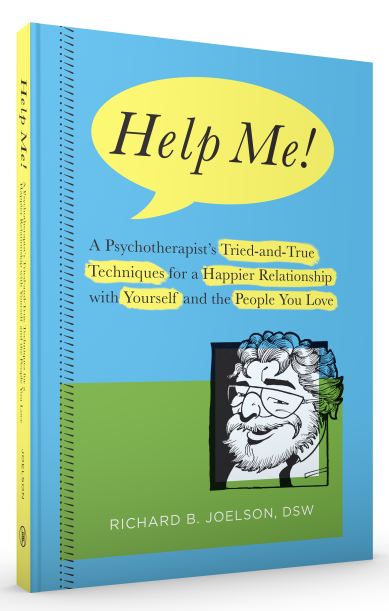Over time, she noticed that there were fewer welcome mats at the doors of those friends and that her phone conversations and e-mail correspondence had diminished considerably. I suggested that she explore this development with a few close friends in an effort to discover whether she might obtain useful feedback about why friends appeared to be keeping their distance.
Her inquiry revealed that indeed, friends were shying away because Marsha had become a “downer” whose constant expressions of gloom and despair had led to social consequences. Friends told her that she had gotten too “heavy” for them and that they wished that she would work on her issues primarily in her therapy and not during nights out with friends.
We all know people who seem mired in their misery and appear unable or unwilling to free themselves from their despair. They are the friends, family or co-workers who appear to be over focused on their problems, grievances, and the conditions that make them unhappy. While their life complaints may be valid and legitimate, they are all about what is wrong and seem to have “woe is me” as their theme song throughout life.
Some people are chronic self-pitiers who seem to find new reasons to feel sorry for themselves, rather than looking for ways to change their situations. Often, it is very difficult to be empathic toward these individuals since they inspire guilt or cause a reaction commonly referred to as “compassion fatigue.” These people often appear inconsolable and unresponsive to help or encouragement from others, even though they appear to want that from anyone who will listen to their troubles.
Marsha used the feedback well. In addition to “only having one therapist instead of several,” she became more alert to her tendency to use friends in order to unload her despair and gain sympathy. She responded to my efforts to help her appreciate the many things in her life for which she might feel grateful and she joined a support group of people who shared some of the difficulties that were undermining her overall well being.
In moderation and as a temporary device, self-sorrow can be soothing and helpful in one’s efforts to overcome the pain that life sometimes causes. Sympathy and expressions of concern can be very healing and restorative for those who are suffering from a terrible life event or personal loss. In the extreme, however, and when “woe is me” becomes a person’s calling card, otherwise sympathetic people grow weary and resentful and may lose respect for the chronic sufferer who may be doing little or nothing to handle their troubles differently.
